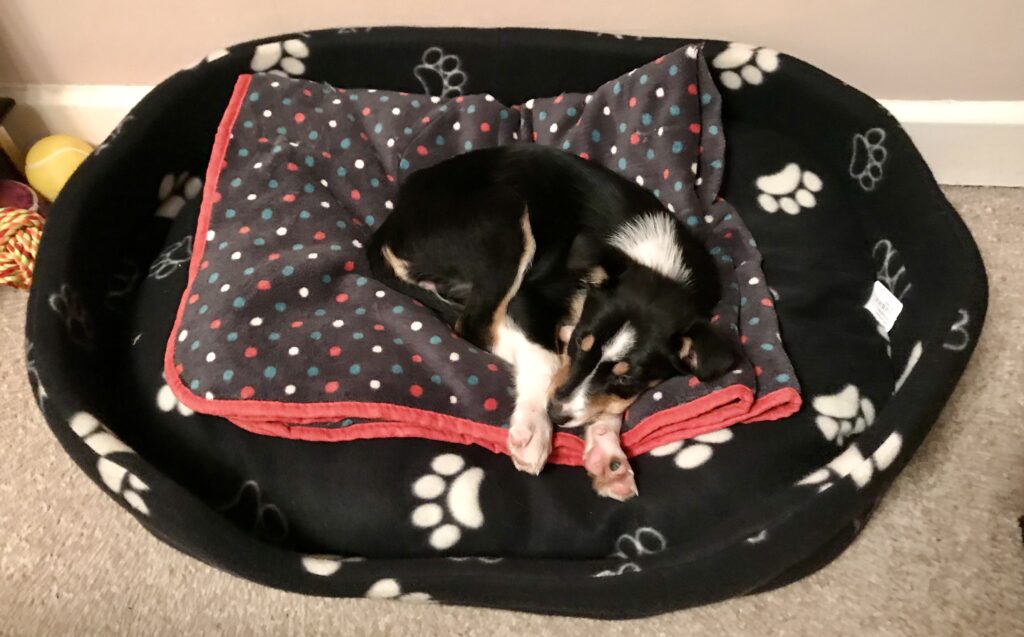
What Happens When a Dog Eats Rodenticide, and How to Prevent It: Anticoagulants and Cholecalciferol
How Anticoagulant and Cholecalciferol Rodenticides Work
Rodenticides and Dogs. Understanding their mechanisms can help you identify symptoms and react quickly if poisoning occurs.
- Anticoagulants: These prevent blood from clotting by inhibiting vitamin K, essential for coagulation. When dogs ingest anticoagulants, they can suffer from severe, uncontrolled internal bleeding, which can be life-threatening without prompt treatment.
- Cholecalciferol (Vitamin D3): This toxin increases blood calcium levels to dangerous levels. The resulting hypercalcemia (high calcium) damages the kidneys, heart, and nervous system, often leading to kidney failure if untreated. Symptoms may take a few days to appear, making this type of poisoning particularly risky.
Recognising Signs of Rodenticide Poisoning in Dogs
Knowing the symptoms of anticoagulant and cholecalciferol poisoning can help you act fast. Look for these warning signs, especially if you suspect your dog has ingested rodenticide.
Symptoms of Anticoagulant Poisoning
Anticoagulant poisoning symptoms typically appear within three to seven days of ingestion:
- Bruising on the skin or gums
- Bleeding from the nose, mouth, or in the urine or stool
- Weakness and lethargy
- Pale gums due to blood loss
- Breathing difficulties if there’s internal bleeding in the chest
- Swollen joints or lameness from joint bleeding
Symptoms of Cholecalciferol Poisoning
Cholecalciferol poisoning signs usually develop within 12–36 hours as calcium levels rise:
- Increased thirst and urination as kidneys work to expel excess calcium
- Vomiting and diarrhoea
- Loss of appetite
- Lethargy and weakness
- Muscle tremors and seizures in severe cases
- Irregular heartbeats
If you notice any of these symptoms and suspect rodenticide exposure, reach out to your vet immediately. Acting quickly improves your dog’s chances of recovery.
Immediate Steps to Take If Your Dog Eats Rodenticide
If you know or suspect your dog has ingested rodenticide, follow these steps immediately:
- Contact Your Vet or an Emergency Animal Hospital: Time is critical. Inform your vet of the type of rodenticide ingested and the amount, if known. Bring any packaging to the vet, as it helps identify the toxin and determine the best course of action.
- Avoid Home Remedies: Do not induce vomiting or administer any home treatments without professional guidance, as these could worsen the situation. A veterinarian will know the safest and most effective approach based on the type of rodenticide ingested.
- Stay Calm and Act Quickly: Swift action can make a big difference, but panicking will only slow you down. Get your dog to the vet as soon as possible.
Veterinary Treatment for Rodenticide Poisoning
Depending on the type of rodenticide ingested, veterinarians use different treatments. Here’s how they typically manage anticoagulant and cholecalciferol poisoning:
Treating Anticoagulant Poisoning
The vet will perform a blood clotting test to confirm anticoagulant poisoning. Treatment usually includes Vitamin K1 therapy, an essential component that helps restore clotting ability. This is often administered over a few weeks. If blood loss is severe, a blood transfusion may be necessary. Regular follow-up blood tests help ensure recovery and monitor for any lasting effects.
Treating Cholecalciferol Poisoning
Cholecalciferol poisoning requires a multifaceted approach to reduce calcium levels in the bloodstream. Treatment includes IV fluids, medications that block calcium absorption, diuretics to help flush calcium through the kidneys, and corticosteroids. Due to the complexity of managing cholecalciferol poisoning, intensive monitoring is essential to minimise kidney damage and maximise recovery.
Preventing Rodenticide Poisoning: Practical Tips
Preventing accidental rodenticide ingestion is key to keeping your dog safe. Here are practical steps for creating a safer environment:
- Avoid Using Rodenticides When Possible: Opt for pet-friendly alternatives such as traps positioned in secure, pet-inaccessible areas. Both live traps and snap traps can be effective without the risks that rodenticides pose.
- Use Enclosed Bait Stations: If rodenticides are necessary, use enclosed bait stations that prevent pets from accessing the poison. Only rodents can enter these stations, minimising the risk to pets.
- Opt for Professional Pest Control Services: Professional pest control services like Shire Pest Solutions in Didcot and Wallingford prioritise safe and pet-friendly methods. When choosing rodenticides, Shire Pest Solutions carefully considers pet safety and will select products that minimise risk. If rodenticides are unsuitable, they can also set up traps in strategic locations to effectively manage rodent populations without endangering pets.
- Securely Store Rodenticides: Always store rodenticides in locked cabinets or cupboards, well out of reach of pets and children. Avoid keeping them in garages, sheds, or any areas where dogs might explore.
- Educate All Household Members: Ensure everyone in your household, including children and guests, understands the dangers rodenticides pose to pets. Remind them to avoid moving or tampering with any bait stations or traps.
- Supervise Dogs in Outdoor Areas: Keep your dog on a lead in outdoor areas where rodenticides might be present, such as farms or parks. Dogs may accidentally come across baits or poison in shared spaces, so supervision helps prevent this risk.
Pet-Safe Alternatives to Rodenticides
There are several effective alternatives to traditional rodenticides, allowing you to control rodents without endangering pets:
- Sealing entry points: Rodents often enter buildings through small gaps or holes. Sealing these entry points can help prevent infestations.
- Traps: Traps can capture rodents. When placed in secure areas, they present no risk to pets.
Shire Pest Solutions’ Commitment to Pet Safety
Shire Pest Solutions understands the importance of pet safety in homes and environments where pest control is essential. Whenever possible, they avoid using toxic rodenticides around pets. If rodenticides must be used, they choose formulations and containment methods designed to reduce risk. And if rodenticides aren’t a viable option, Shire Pest Solutions will set up traps instead. By prioritising safe pest control techniques, they ensure that their services are effective and pet-friendly.
Final Thoughts
Anticoagulant and cholecalciferol rodenticides offer powerful rodent control but come with significant risks for dogs. Prevention is the best defence, so be vigilant about where and how you use these products. Keep rodenticides securely stored, consider alternatives, and, if you must use them, opt for enclosed bait stations or consult a trusted pest control provider like Shire Pest Solutions. Taking these steps helps you protect your pets while effectively managing rodents in your environment.




